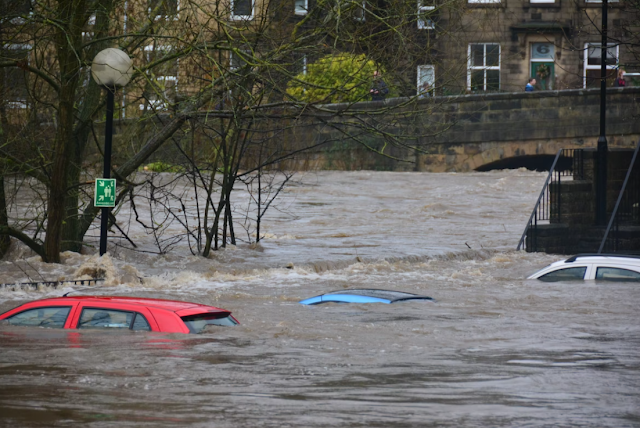Natural disasters can be devastating, but if you prepare and respond quickly, you can minimize the damage.
Hurricanes, floods, earthquakes, or even blizzards can create destruction and chaos. Knowing how to react and stay safe ahead of time is key to staying intact during a natural disaster.
Read on for six tips on what to do if your area is hit by a natural disaster.
It's important to know what to do before a natural disaster strikes. Have an emergency plan in place that outlines where you would go in case of evacuation and what supplies you need in case of emergency.
Having an emergency kit ready with basic supplies like water, food, flashlights and batteries will help keep your family safe during the storm or other natural disasters.
Pay attention to news reports about the weather or other warnings from local authorities for updates on the situation and safety measures being taken in advance of a storm or other natural disaster approaching your area.
Before a storm comes through your area, make sure all windows are secured with shutters or boards, doors are locked tight, outdoor furniture is secured and stored away safely, car keys are accounted for, and all outdoor toys are put away safely inside the home.
No matter how tempting it may be, try not to go outside during any major storms unless absolutely necessary. Flying debris and downed power lines can be incredibly dangerous, even fatal, during extreme weather conditions.
Once it has been determined that it is safe enough to venture outside, contact local professionals like roofers, plumbers, or electricians immediately after the storm has passed.
Create an Emergency Plan
It's important to know what to do before a natural disaster strikes. Have an emergency plan in place that outlines where you would go in case of evacuation and what supplies you need in case of emergency.
Ensure all family members know the plan so they know where they should go when danger is imminent.
Have an Emergency Kit on Hand
Having an emergency kit ready with basic supplies like water, food, flashlights and batteries will help keep your family safe during the storm or other natural disasters.
Remember medicine and first aid kits as well! Having these items ready will make responding quickly to the situation much easier.
Stay Informed
Pay attention to news reports about the weather or other warnings from local authorities for updates on the situation and safety measures being taken in advance of a storm or other natural disaster approaching your area.
This will help keep you informed about evacuation routes or shelters available in case of emergency so you can act quickly if necessary.
Secure Your Home
Before a storm comes through your area, make sure all windows are secured with shutters or boards, doors are locked tight, outdoor furniture is secured and stored away safely, car keys are accounted for, and all outdoor toys are put away safely inside the home.
Doing this will help minimize potential damage caused by flying debris during windy storms like hurricanes or tornadoes.
The same goes for floods; make sure items that could be damaged by rising water levels are moved off the ground level into higher parts of your home as much as possible before flooding occurs.
Avoid Going Outside During a Storm
No matter how tempting it may be, try not to go outside during any major storms unless absolutely necessary. Flying debris and downed power lines can be incredibly dangerous, even fatal, during extreme weather conditions.
Keep yourself safe by staying inside whenever possible until it has been deemed safe enough to venture out again.
Contact Professional Help Immediately After the Storm
Once it has been determined that it is safe enough to venture outside, contact local professionals like roofers, plumbers, or electricians immediately after the storm has passed.
Waiting too long could lead to more serious issues down the line, so get professional assistance fast! If there’s been significant damage done due to flooding or high winds such as shingles being ripped off roofs then contacting roofers from a company, like Hurricane Roofer, can help assist with repairs needed post-storm as soon as possible.
Natural disasters can cause major destruction if not taken seriously enough ahead of time or if they’re responded to too late afterward, which is why preparation beforehand is essential no matter what kind of natural disaster might occur near you.
Natural disasters can cause major destruction if not taken seriously enough ahead of time or if they’re responded to too late afterward, which is why preparation beforehand is essential no matter what kind of natural disaster might occur near you.
Following these six steps above on preparing for a natural disaster before it hits, responding quickly once it passes through your area, staying informed throughout its duration, and calling professional help immediately following its aftermath helps ensure that everyone stays safe while minimizing potential damages.
Taking these steps seriously ahead of time when preparing for any type of severe weather event can help give peace of mind knowing that every precaution was taken beforehand should anything happen.



